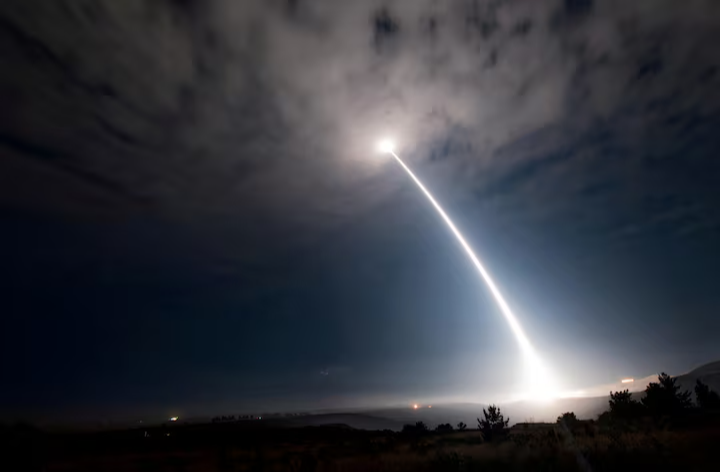
An unarmed Minuteman III intercontinental ballistic missile test-launch at Vandenberg Air Force Base, California, US, August 2, 2017. (File photo via Reuters)
Washington, July 8 (RHC)-- The costs of a U.S. nuclear missile development program have gone above what was estimated, reaching around $160 billion, according to a report.
Reuters quoted three sources familiar with the cost of an Air Force program aimed to replace America’s aging nuclear missiles that the price tag for the project has risen from $95.8 billion to about $160 billion.
The new project, named the Sentinel intercontinental ballistic missile (ICBM) program, is designed and managed by the Virginia-based leading provider of manned air systems, Northrop Grumman Corp.
Both Northrop Grumman and the Pentagon declined to comment on the last figure. However, the Pentagon said a new estimate of the cost of the project will be released around Tuesday.
U.S. Air Force’s top brass insist the project is crucial for maintaining the United States’ global military deterrent.
The past decade has rendered American boasts of global military supremacy so false and obsolete that it now reveals their amateurism, jingoism, or both.
U.S. arms manufacturers have been asked to advise the Pentagon on the costs of a service life extension program for the existing inventory of Minuteman III missiles, according to documents seen by Reuters.
Two of the sources familiar with the matter said the increased costs are putting pressure on other Air Force priorities such as the Next Generation Air Dominance fighter jet program.
Hypersonic weapons development, various space initiatives such as Star Wars, and the manufacture of the new B-21 Raider stealth bomber capable of carrying a nuclear payload could be affected by the increased costs, according to the sources.
Hundreds of millions of dollars of the U.S. military budget are allocated to sending weapons to Ukraine and Israel and pushing back against China’s plans in the Indo-Pacific region.

